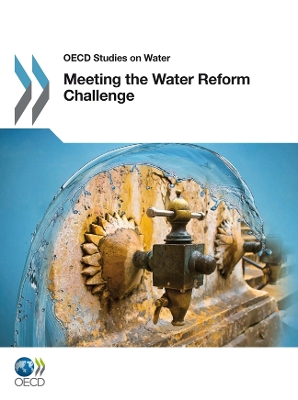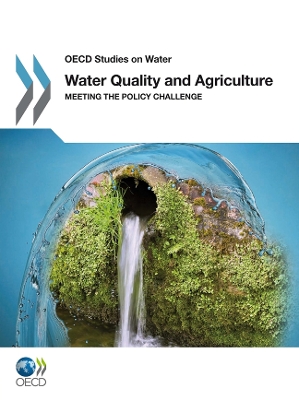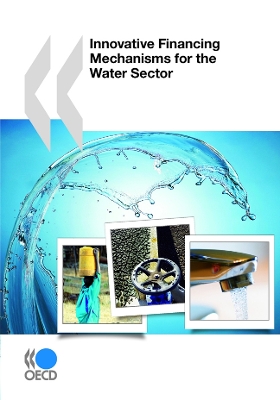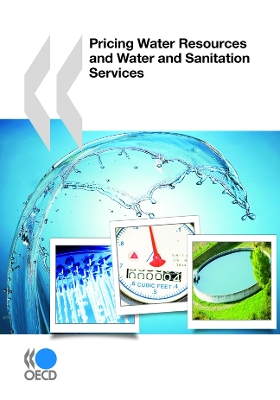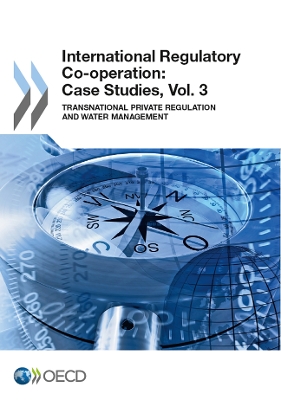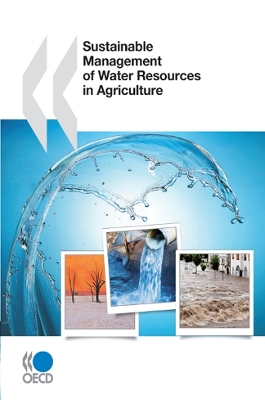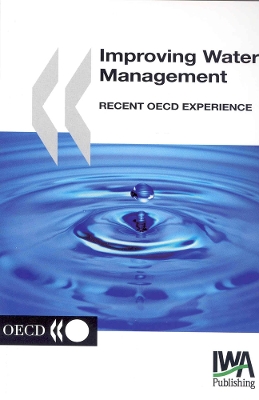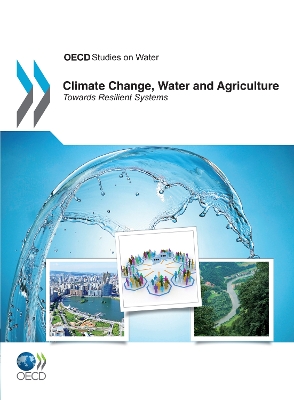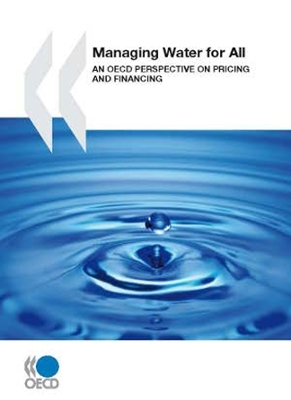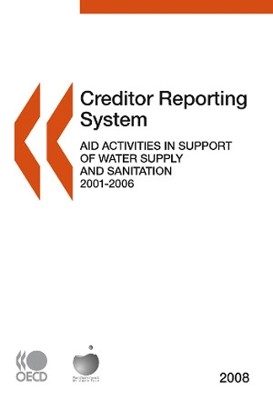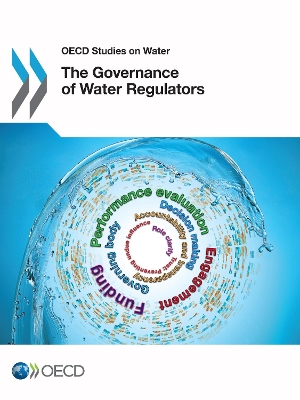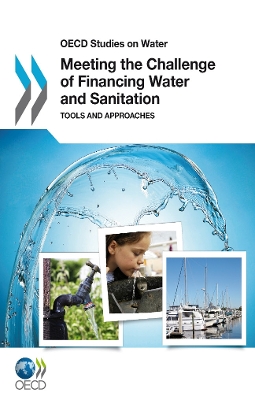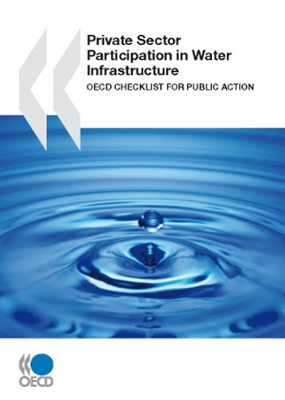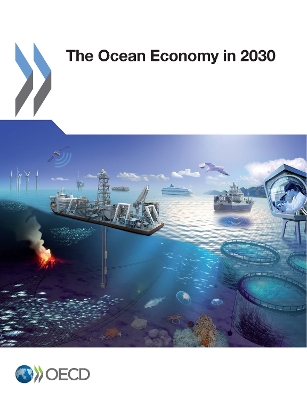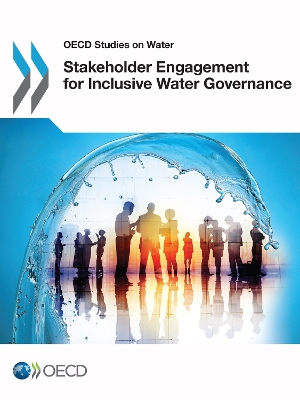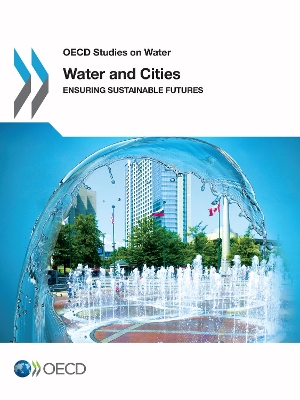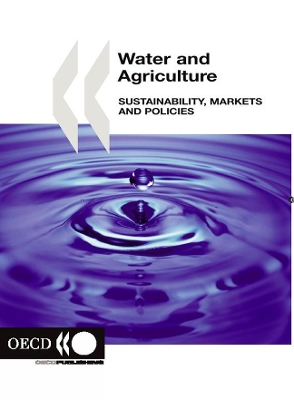OECD Report
24 total works
Meeting the Water Reform Challenge
by OECD: Organisation for Economic Co-Operation and Development
This report on Meeting the Water Reform Challenge brings together key insights from recent OECD work and identifies the priority areas where governments need to focus their reform efforts. It calls for governments to focus on getting the basics of water policy right. Sustainable financing, effective governance, and coherence between water and sectoral policies are the building blocks of successful reform.
Water Quality and Agriculture
by OECD: Organisation for Economic Co-Operation and Development
OECD Water Resources and Sanitation Set
by OECD: Organisation for Economic Co-Operation and Development
Purchase all four reports together and save over 30% on buying separately.
Includes:
- Sustainable Management of Water Resources in Agriculture - Organisation for Economic Co-Operation and Development (OECD), March 2010. ISBN: 9781843393658
- Managing Water for All - Organisation for Economic Co-Operation and Development (OECD), March 2009. ISBN: 9781843392798
- Water Security for Better Lives - Organisation for Economic Co-Operation and Development (OECD), January 2014. ISBN: 9781780405766
- Climate Change, Water and Agriculture: Towards Resilient Systems - Organisation for Economic Co-Operation and Development (OECD), September 2014. ISBN: 9781780406602
Innovative Financing Mechanisms for the Water Sector
by OECD: Organisation for Economic Co-Operation and Development
This report examines innovative mechanisms that can help attract new financial resources into water and sanitation services. In particular, it focuses on mobilising market-based repayable financing (such as loans, bonds and equity) as a way of bridging the financial gap to meet the water-related Millennium Development Goals and other crucial sector objectives.
The Camdessus and Gurria reports, published seven and four years ago, respectively, formulated a number of recommendations in this area. This report examines the extent to which these recommendations have been implemented. It looks at the rapidly evolving global context and to the ongoing financial and economic crisis, and considers how innovation in financing for the water sector may need to adapt.
Further reading: Managing Water for All (2009); Private Sector Participation in Water Infrastructure: OECD Checklist for Public Action (2009); Social Issues in the Provision and Pricing of Water Services (2003); The Price of Water: Trends in OECD Countries (1999);
Visit http://www.iwawaterwiki.org/xwiki/bin/view/Articles/UsefulResourcesforDevelopingCountries_0 to access the OECD area on the IWA WaterWiki
In both OECD and non-OECD countries the water sector is facing the challenges of increased competition for water resources, deteriorating water quality, and the effects of climate change and poor management. In this context, how can countries ensure access to adequate, sustainable and affordable water and sanitation services for all? Pricing water-related services is an essential part of the answer.
This report compiles reliable and comparable data on pricing water and on water supply and sanitation services across OECD countries. It sheds additional light on such policy issues as the choice of tariff structures for water services, cost recovery for water services and affordability.
Further reading: Sustainable Management of Water Resources in Agriculture (2010); Managing Water for All (2009); Private Sector Participation in Water Infrastructure: OECD Checklist for Public Action (2009); Social Issues in the Provision and Pricing of Water Services (2003);The Price of Water: Trends in OECD Countries (1999)
Visit http://www.iwawaterwiki.org/xwiki/bin/view/Articles/UsefulResourcesforDevelopingCountries_0 to access the OECD area on the IWA WaterWiki
International Regulatory Co-operation
by OECD: Organisation for Economic Co-Operation and Development
This volume complements the stocktaking report on International Regulatory Co-operation: Rules for a Global World by providing evidence on regulatory co-operation in the area of transboundary water management and through the fast development of transnational private regulation.
Agriculture is the major user of water in most countries. It also faces the enormous challenge of producing almost 50% more food by 2030 and doubling production by 2050. This will likely need to be achieved with less water, mainly because of growing pressures from urbanisation, industrialisation and climate change. In this context, it will be important in future for farmers to receive the right signals to increase water use efficiency and improve agricultural water management, while preserving aquatic ecosystems.
This report calls on policy makers to recognise the complexity and diversity of water resource management in agriculture and the wide range of issues at stake. And it gives them the tools to do so, offering a wealth of information on recent trends and the outlook for water resource use in agriculture, including the impacts of climate change. It examines the policy experiences of OECD countries in managing their water resources for agriculture, with focus on: the extent to which countries subsidise the supply of water to farmers; flood and drought risk policies; and institutional organisation and governance as it relates to water and the agricultural sector.
The report offers concrete recommendations on what countries should be doing and why. The analysis is supported by data from an OECD questionnaire about agricultural water resource management and by background reports on:
- Agricultural water pricing in Australia, the European Union, Japan, Korea, Mexico, Turkey and the United States
- Financing water management and infrastructure related to agriculture
- Policy issues concerning agriculture's role in flood adaptation and mitigation
- Experiences and lessons from the Australian water reform programme
- Economic analysis of the virtual water and water footprint concepts in relation to the agri-food sector
The questionnaire and reports can be accessed at www.sourceoecd.org, as well as at www.oecd.org/agr/env and www.oecd.org/water.
Co-Published with the OECD
Improving Water Management
by OECD: Organisation for Economic Co-Operation and Development and J. Cotruvo
Climate Change, Water and Agriculture
by OECD: Organisation for Economic Co-Operation and Development
Managing Water for All
by OECD: Organisation for Economic Co-Operation and Development
Water is a key prerequisite for human and economic development, and for maintaining ecosystems. However, billions of people lack access to water and sanitation services, mainly due to poor governance and inadequate investment and maintenance. The situation is becoming more urgent due to increasing pressure, competition and even conflict over the use of water resources. The OECD has been working over the last two years to address these challenges. The results are summarised in this report, which emphasises the economic and financial aspects of water resources management and water service provision, the need for an integrated approach (including governance considerations) to address these complex policy challenges, and the importance of establishing a firm evidence base to support policy development and implementation.
This report examines: strategic financial planning for water supply and sanitation that balances the key sources of revenues for the water sector – the “3Ts” of taxes, tariffs and transfers; the design and implementation of water pricing strategies that balance financial sustainability with other policy objectives; recent developments in private sector participation in the water sector; and trends and the future outlook of water use in agriculture. It considers both developing and OECD countries and offers concrete recommendations and checklists for action. The report is an invaluable resource for policy makers, academics, NGOs and all others interested in the challenges facing the water sector today.
Aid Activities in Support of Water Supply and Sanitation
by OECD: Organisation for Economic Co-Operation and Development
Part of OECD Water Resources and Sanitation Set - Buy all four reports and save over 30% on buying separately!
This publication presents comprehensive statistics on aid flows in support of water supply and sanitation for the years 2001-2006, including trends in donors' aid and the degree of targeting of countries most in need. Individual donor profiles provide summary statistics in the form of charts and tables, and descriptions of donors' development co-operation policies in the water sector. The publication also records the relevant aid activities reported by DAC members and multilateral institutions to the CRS Aid Activity database (Creditor Reporting System). The information is based on individual commitments and disbursements of Official Development Assistance (ODA) to water supply and sanitation.
This edition is the product of collaboration between the Secretariat of the OECD Development Assistance Committee (DAC) and the World Water Council (WWC).
This title is Co-Published with the OECD
Water Resources Allocation
by OECD: Organisation for Economic Co-Operation and Development
The Governance of Water Regulators
by OECD: Organisation for Economic Co-Operation and Development
The results from the survey show that the 34 water regulators show generally a high level of adoption of good governance principles and practices. They display functions and powers that are in line with their objectives. Water regulators also show a strong culture of consultation. Other areas, in particular evaluation of regulatory impacts, could be further strengthened.
Meeting the Challenge of Financing Water and Sanitation
by OECD: Organisation for Economic Co-Operation and Development, Paul Kohl, and S. Medlar
Some of the key messages of this report are:
- WSS generate substantial benefits for the economy
- Investment needs to generate these benefits are large in both OECD and developing countries
- Tariffs are a preferred funding source, but public budgets and ODA will have a role to play, too
- Markets-based repayable finance is needed to cover high up-front capital investment costs
- Strategic financial planning and other OECD tools can help Governments move forward
Private Sector Participation in Water Infrastructure
by OECD: Organisation for Economic Co-Operation and Development
Many countries have sought the involvement of the private sector to upgrade and develop their water and sanitation infrastructure and improve the efficiency of water systems. However, high capital intensity, large initial outlays, long pay-back periods, immobility of assets and low rates of return generate high risks. These factors, when combined with poor initial information and weak investment environment, limit the scale of private sector participation in water and sanitation infrastructure.
Recognising this, the OECD has developed practical guidance, building on the OECD Principles for Private Sector Participation in Infrastructure, to help governments and other stakeholders to assess and manage the implications of involving private actors in the financing, development and management of water and sanitation infrastructure. The resulting OECD Checklist for Public Action provides a coherent catalogue of policy directions for consideration by governments, including appropriate allocation of roles, risks and responsibilities, framework conditions and contractual arrangements necessary to make the best of private sector participation and harness more effectively the capacities of all stakeholders.
This title is co-published with the OECD
See also: Public and Private Participation in the Water and Wastewater Sector - Developing Sustainable Legal Mechanisms, Cledan Mandri-Perrott, 2009; Public Private Partnerships in the Water Sector, Innovation and Financial Sustainability, Cledan Mandri-Perrott and David Stiggers, 2012
OECD Water Policy and Finance Set
by OECD: Organisation for Economic Co-Operation and Development
Purchase all four reports together and save over 30% on buying separately.
Includes:
- Benefits of Investing in Water and Sanitation - Organisation for Economic Co-Operation and Development (OECD), April 2011. ISBN: 9781780400112
- Innovative Financing Mechanisms for the Water Sector - Organisation for Economic Co-Operation and Development (OECD), March 2010. ISBN: 9781843393672
- Pricing Water Resources and Water and Sanitation Services - Organisation for Economic Co-Operation and Development (OECD), March 2010. ISBN: 9781843393665
- Private Sector Participation in Water Infrastructure - Organisation for Economic Co-Operation and Development (OECD), March 2009. ISBN: 9781843392712
The Ocean Economy in 2030
by OECD: Organisation for Economic Co-Operation and Development
This report provides pragmatic policy guidance to decision makers and practitioners in the form of key principles and a Checklist for Public Action with indicators, international references and self-assessment questions, which together can help policy makers to set up the appropriate framework conditions needed to yield the short and long-term benefits of stakeholder engagement.
Water and Cities
by OECD: Organisation for Economic Co-Operation and Development
